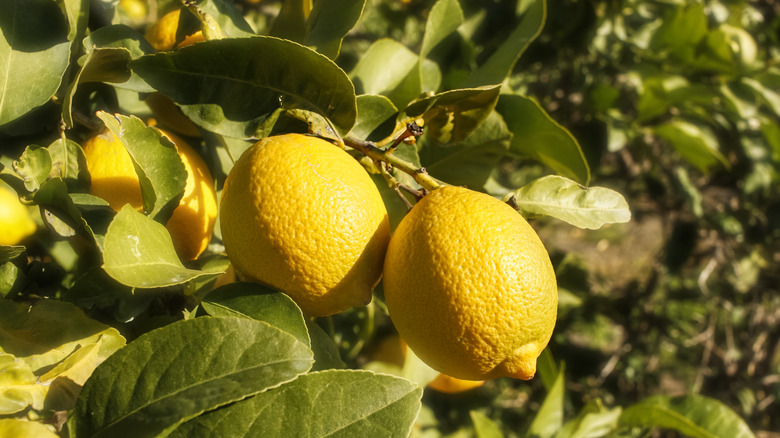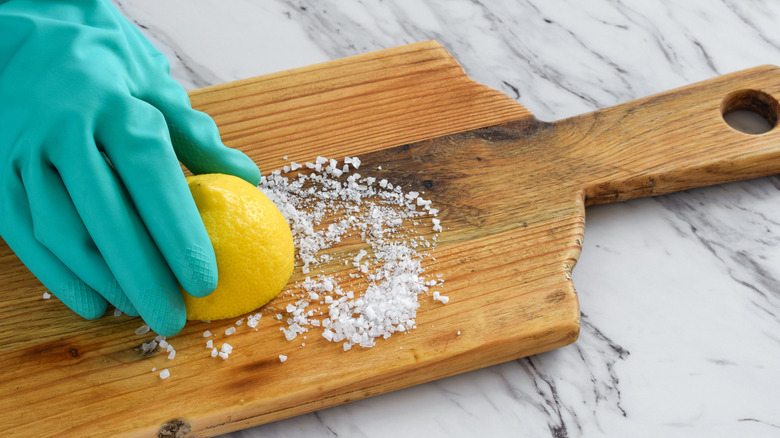Is Lemon Juice Strong Enough To Disinfect Your House? Here's What The Science Says
Humans have come to associate the smell of lemon with cleanliness — witness the number of products on the grocery store shelves that promise lemon fresh laundry or a single lemon-infused product that cleans every surface, leaving only a bracing citrus aroma behind. It certainly beats the smell of ammonia or bleach, highly effective cleaners that people generally think smell horrible. If you prefer to avoid those strong-smelling cleaners, or if you'd like to use a natural product for cleaning, the citric acid in lemon juice can kill bacteria when used full strength. Lemon-based products will clean dirt and grime and leave your kitchen sparkling, but they won't disinfect the surfaces.
There's a difference between disinfectants and sanitizers. By the Environmental Protection Agency's (EPA) standards, sanitizers destroy, neutralize, or inhibit the growth of bacteria on surfaces, while disinfectants kill viruses and disease-carrying bacteria on surfaces. By this standard, lemon juice with its bacteria-killing properties is a sanitizer, but not a disinfectant because it doesn't kill viruses. That doesn't mean you should remove it or the many products that contain lemon juice from your cleaning routine. The acid in it breaks down mineral deposits, rust, and hard water stains. Lemon also cuts grease, deodorizes, lightens stains, and removes tarnish from metals, with the exception of silver, which it should never be used on.
How to sanitize with lemon juice
Lemon juice is an effective sanitizer, but it's not a miracle worker. The acid in it lightens stains, but it shouldn't be used on anything that would be affected by the bleaching action of the acid. Nuking a mixture of lemon juice and water in your microwave will make the appliance easier to clean, and it may make the kitchen smell great, but it won't disinfect it. Lemon juice combined with salt will clean and deodorize your cutting board, among other things, and works wonders at removing garlic smells. Despite what you may have heard on social media, tossing a lemon in the dishwasher won't remove limescale. The acid in the lemon, diluted by all the water in the dishwasher, isn't sufficient to make much of a difference. On the other hand, baking soda and lemon juice usually work on hair clogs in drains.
Using natural products to disinfect rather than introducing more chemicals into the environment is an achievable goal, but there are more effective solutions than lemons. Regular cleaning with hot, soapy water is frequently all you need to do to lower your exposure to germs. Hydrogen peroxide is an effective disinfectant when used with caution. For household cleaning, use 3% peroxide at full strength. Higher concentrations can be dangerous. A solution of a quarter cup of bleach in a gallon of cold water will kill many viruses, but you'll need to use it within 24 hours because its efficacy diminishes over time.

